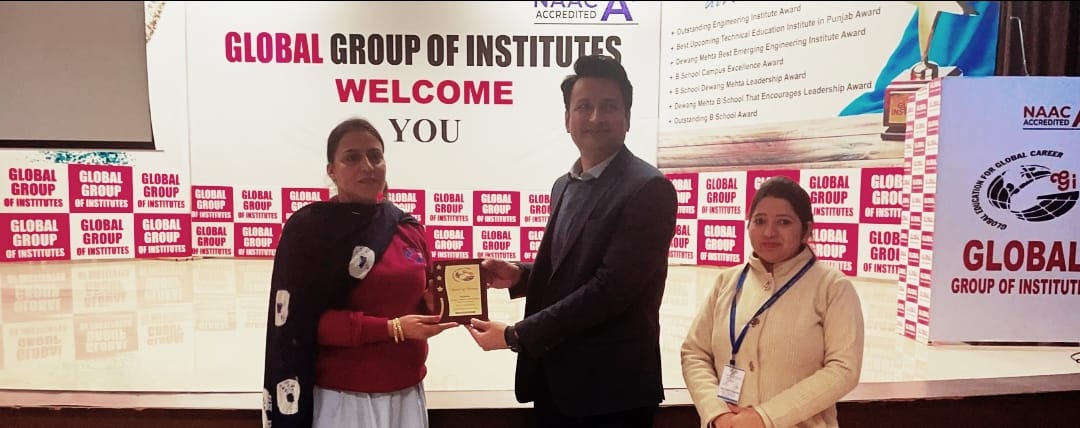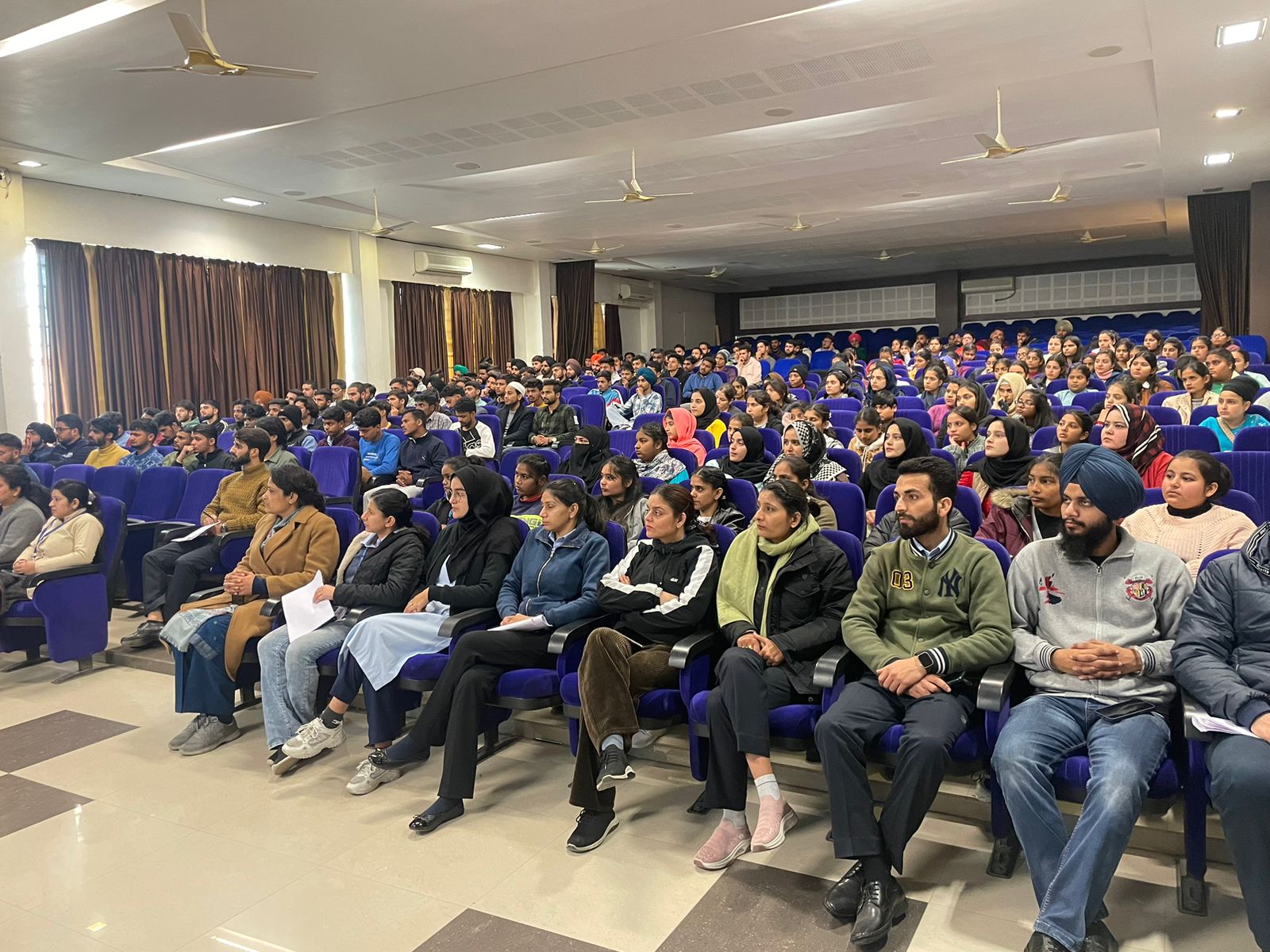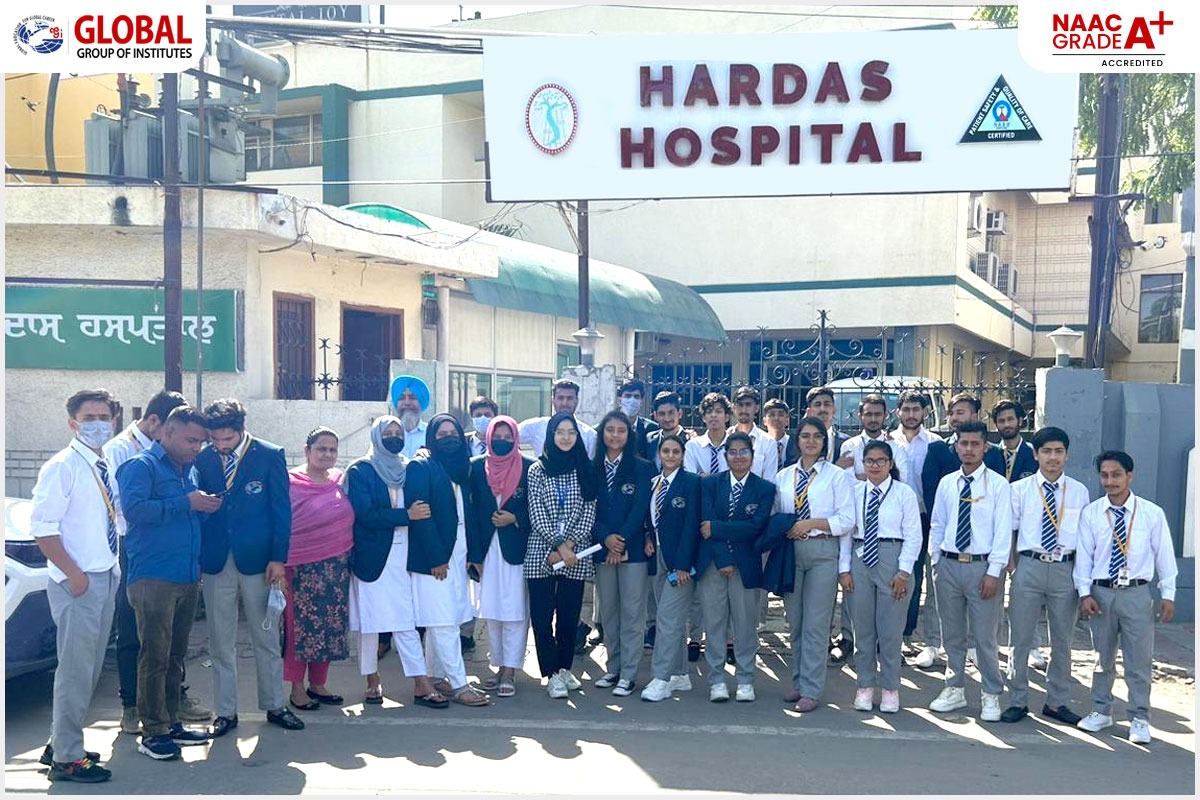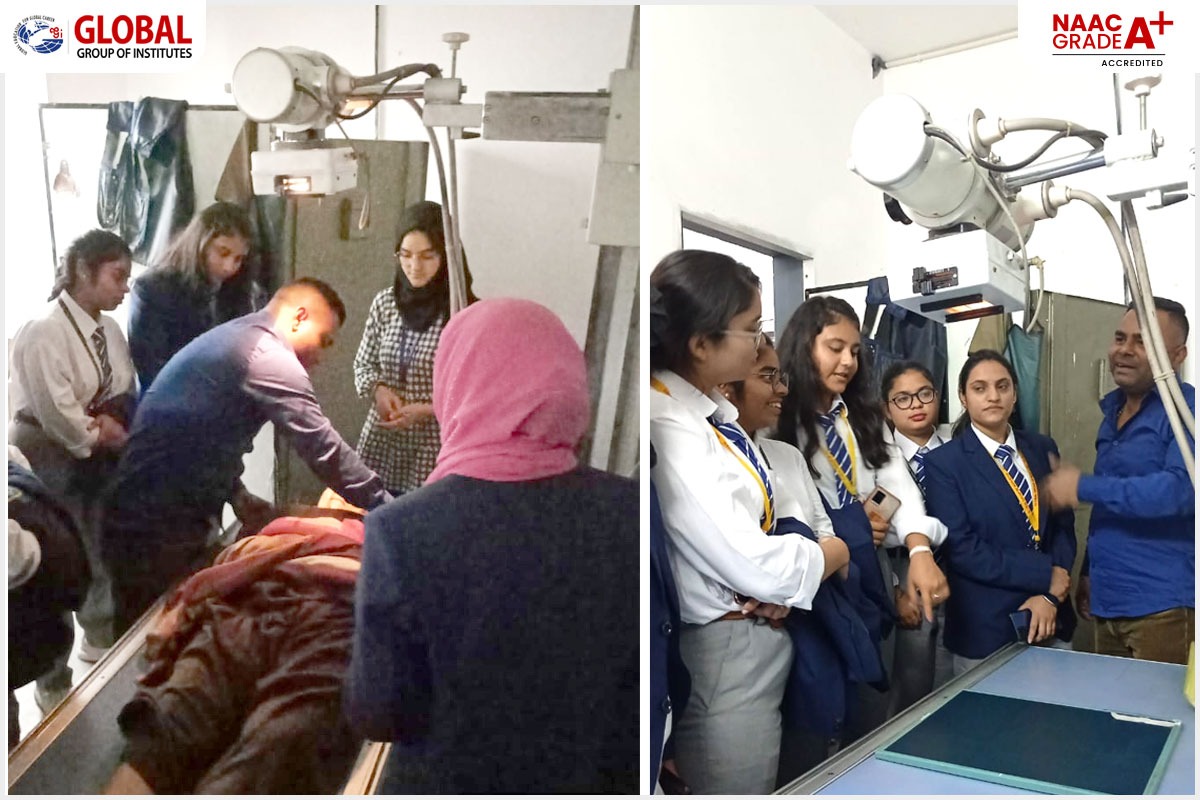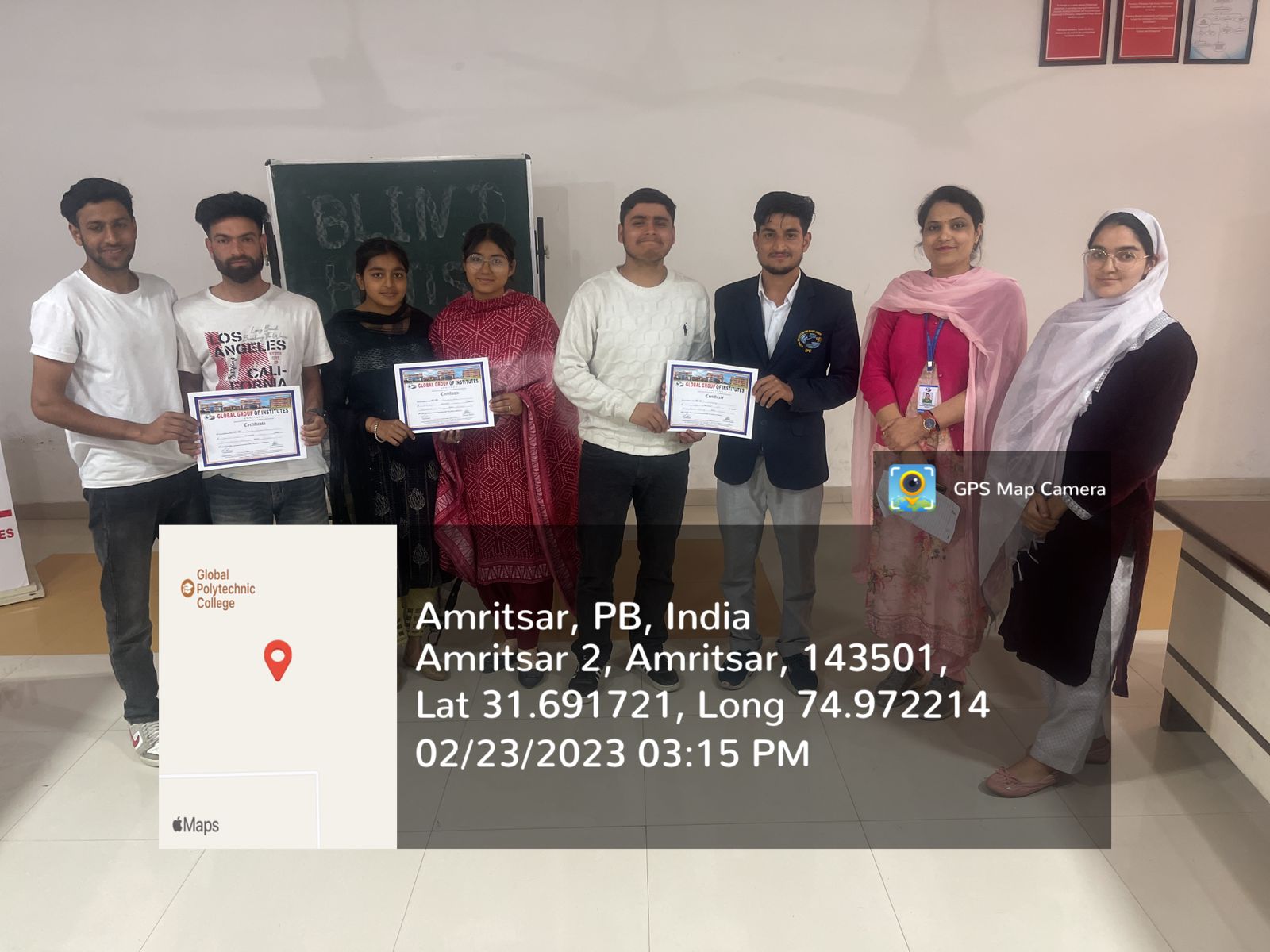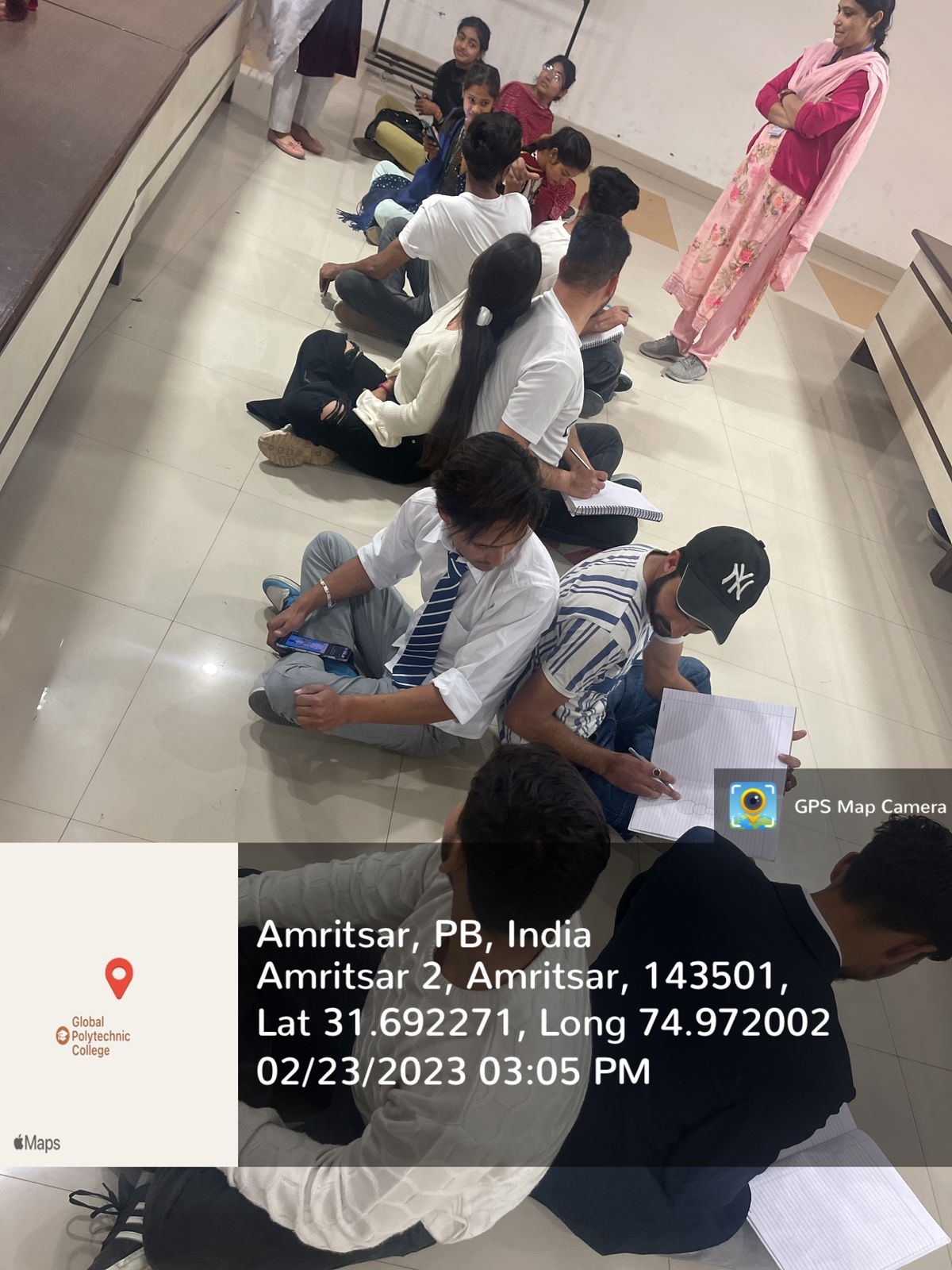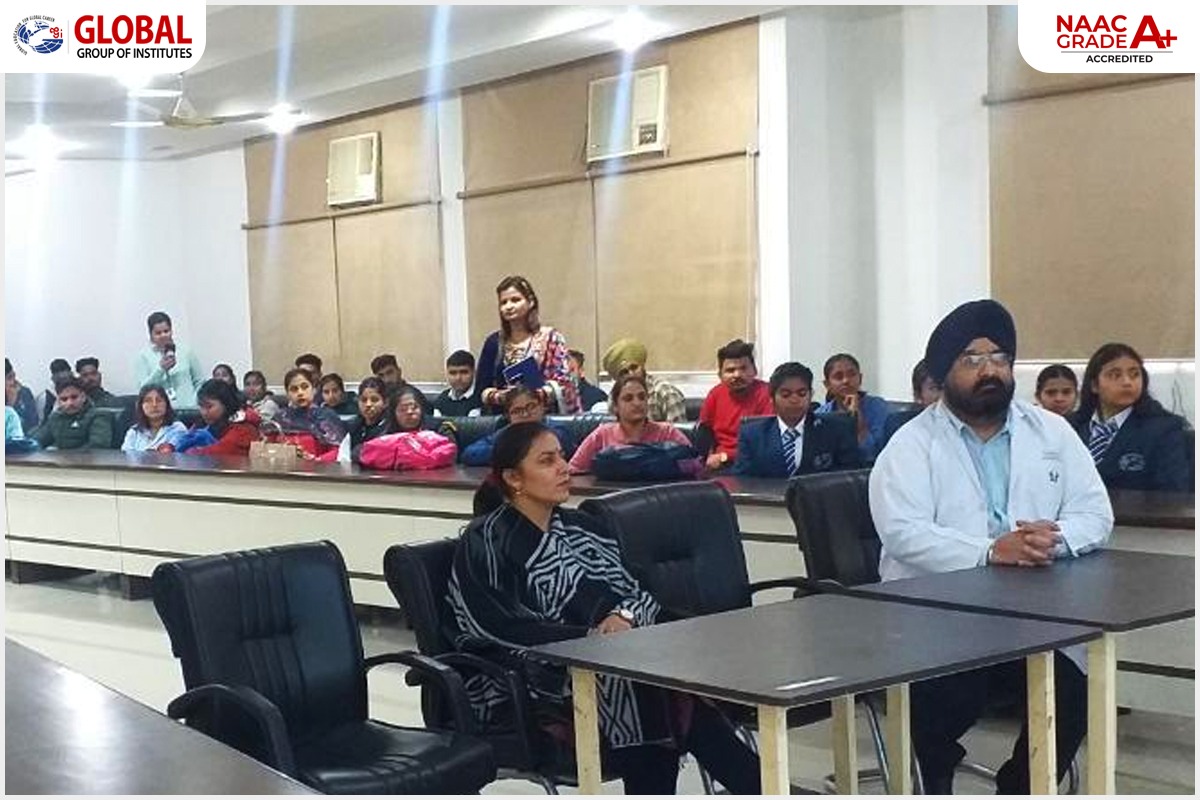Bachelor of Radiology Imaging & Technology
Radiology, a critical field within medical science, leverages advanced imaging techniques for the diagnosis, treatment, and ongoing management of diverse pathologies. This discipline encompasses a broad spectrum of modalities such as X-rays, Ultrasound, Computed Tomography (CT), Positron Emission Tomography (PET), and Magnetic Resonance Imaging (MRI). These technologies offer aspiring radiologists a multitude of specialisation opportunities, enabling precise and informed clinical decisions across healthcare settings.
Vision
- To establish ourselves as a premier institution in higher technical education.
- To nurture future leaders in technology and innovation.
- To drive techno-economic, social, and cultural prosperity.
- To contribute to the environmental well-being of Punjab, the nation, and the global community.
Mission
- To deliver education that integrates innovative technology, in partnership with industry and society, to enhance research, discovery, and entrepreneurship.
- To prepare students as responsible global citizens and leaders in technology and innovation, with the necessary knowledge, skills, and attitudes for success.
- To instil in students a culture of integration and adaptability across all life’s aspects.
Objectives
- To deliver globally relevant education that is industry-linked and research-focused across undergraduate, postgraduate, and research levels in engineering, technology, and applied sciences, ensuring the output is of excellent quality and meets global technological needs.
- To inspire the creation and industry transfer of new, relevant technologies for effective utilisation.
- To engage in solving engineering and managerial challenges pertinent to global industry and society through fundamental and applied research.
- To offer continuing education programs for practising engineers and managers to refresh their core knowledge and enhance problem-solving skills.
- To establish strong collaborative ties with both private and public sectors through consultancy, applied research projects, and manpower development programs.
- To forge partnerships with leading academic and research institutions globally for reciprocal advantages.
- To lead in laboratory planning and development of instructional materials across various media, including audio-visual and digital formats.
- To create faculty development programs for both internal staff and educators from other institutions in engineering and technology.
- To proactively identify future global technological needs and prepare strategies to meet these demands.
- To engage with the community to foster scientific and technological understanding and enthusiasm.
- To contribute to Punjab’s technological advancement through community development initiatives, including training and education for unorganised sectors and underprivileged sections of society.
Program Educational Objectives (PEOs)
Upon completion of the Program, students will:
PEO1: Gain a comprehensive understanding of the fundamentals and applications of radiological equipment, including MRI, CT Scan, and X-ray machines.
PEO2: Acquire the capability to perform various radiological procedures essential for diagnostic purposes.
PEO3: Develop extensive technical knowledge in Radiology, enabling effective assistance in all aspects of Radiological Imaging.
PEO4: Be prepared for professional opportunities within hospitals, as well as advanced education and research in Radiology and Imaging.
Program Outcomes
At the end of the Program, the student will be able to –
PO1: Engage in lifelong learning and adapt to changing professional and societal needs.
PO2: Join private, military, and public health services.
PO3: Work in the industry for application and software development for medical imaging equipment.
PO4: Study Radiological & Imaging Technology, including MRI, CT scan, and USG.
PO5: Perform various radiological procedures for diagnostic purposes.
PO6: Understand the fundamentals and applications of radiological equipment like MRI, CT Scan, and X-ray machines.
PO7: Explore foundational science and safety principles in Medical Imaging Technology.
PO8: Enhance knowledge through clinical experience, interactions, discussions, and research to improve training and education quality in Medical Imaging.
PO9: Deepen expertise in the subject and contribute to the advancement of knowledge in Medical Imaging.
PO10: Develop technical and presentation skills to become efficient technologists using state-of-the-art facilities and equipment.
PO11: Apply critical appraisal skills in day-to-day practice.
PO12: Work competently in hospital radiology suites, MRI units, and other related sections.
PO13: Exhibit problem-solving and critical thinking skills to assist radiologists in various procedures.
PO14: Understand the physical principles and theories involved in diagnostic imaging modalities.
PO15: Possess comprehensive knowledge of Radiology & Imaging Sciences for conducting various required procedures.
PO16: Integrate knowledge of different Radiological & Imaging procedures with their in-depth understanding.
Program Specific Outcomes
Upon completion of the program, students will:
PSO1: Be competent to work in hospital radiology suites, MRI units, and other related sections.
PSO2: Develop an understanding of the physical principles and theories involved in diagnostic imaging modalities.
PSO3: Serve as a valuable manpower resource in the health sector, particularly in MRI, CT scan, X-ray, and Ultrasonography sections.
PSO4: Explore the foundational science and safety principles in Medical Imaging Technology.
Career Aspects
| Radiologic Technologist | Diagnostic Medical Sonographer |
| MRI Technologist | Nuclear Medicine Technologist |
| CT Scan Technologist | Radiation Therapist |
| Ultrasound Technician | Vascular Technologist |
| Radiology Assistant | Mammography Technologist |
| Radiology Technician | X-Ray Technician |
| Interventional Radiology Technologist | Radiology Nurse |
| Radiology Manager | Medical Imaging Supervisor |
| PET Scan Technologist | Radiopharmaceutical Production Technician |
| Quality Assurance Technician in Radiology | Clinical Application Specialist in Radiology |
As healthcare continues to advance, the demand for skilled professionals in the field of radiology and medical imaging is more critical than ever. Graduates of the B.Sc. (Radiology Imaging & Technology) programs are poised to become leaders in medical imaging, contributing to transformative advancements in healthcare.
Department of Radiology Imaging & Technology” of Pharmacy wing organized a Guest Lecture on the topic ” INTERVENTIONAL CARDIOLOGY on 07/02/2024″
Department of Radiology Imaging & Technology” of Pharmacy wing organized a Guest Lecture on the topic ” INTERVENTIONAL CARDIOLOGY”. The lecture was delivered by Dr. Anil Sharma, MBBS, MD, DM Cardiology, IVY Hospital, Amritsar.
Dr. Anil Sharma started his lecture with general introduction of Heart and its anatomy. He also elaborated the term Cardiology , which is a branch of medicine that deals with disorders of the heart and the cardiovascular system. In addition to this, he discussed about Interventional Cardiology, which is a specialty that diagnoses and treats heart and blood vessel conditions using small tubes, which are known as called Catheters .
He made the audience aware that the heart diseases like Myocardial Infarction and heart attack can be diagnosed with the help of various tests like *ECG, Echocardiography, MRI and by CATH LAB.
He also discussed about the procedures for the treatment of the heart diseases like Angioplasty, Angiography, and Pacemaker replacement .
He further apprised that before the treatment, there should be pre-operative assessment of the patient and after the surgery, there should be post-operative assessment like the temperature conditions should be maintained optimum.Even the holes in the heart can be treated by simple surgeries without stitches.
Overall, the lecture was very impressive and was appreciated by all of the students as well as the faculty.

